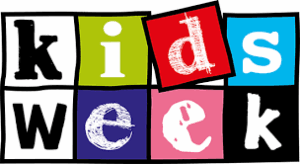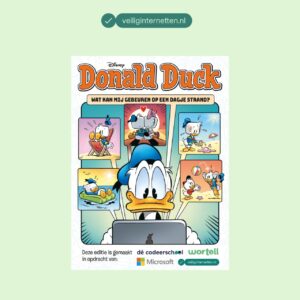I was happy to deliver a keynote at the LBDI-SSH Expert Meeting in Utrecht on November 18, 2025. The presentation, titled “Studying the Sometimes Unresearchable: My Researcher Wish List“, focused on the urgent needs and structural challenges facing social sciences and humanities (SSH) researchers trying to work with digital data and platforms. In the presentation, Read More
New Findings: We Are Less Digitally Skilled Than We Think
Our team at the University of Amsterdam*, just released new findings on the state of digital competence in the Netherlands — and the results are surely interesting! In short: most Dutch people think they’re digitally skilled, but our data show that their actual abilities don’t always match. Using our updated DigIQ 2.0 instrument, we surveyed Read More
Helping Kids Get Smart About Media — My Collaboration with Kidsweek
This week marks the Week van de Mediawijsheid in the Netherlands: a nationwide initiative focused on helping everyone, young and old, use media in ways that feel healthy, balanced, and positive. It’s one of my favorite times of the year because it brings attention to something I care deeply about: guiding children toward confident, thoughtful Read More
Renewed Erasmus Funding Powers Mundus Journalism’s Resilience-Focused Next Chapter
I’m thrilled to share that our Erasmus Mundus Master’s in Journalism, Media, and Globalisation has been awarded renewed Erasmus funding for the next five years — supporting the next chapter of our internationally recognized joint-degree program. For nearly twenty years, Mundus Journalism has brought together leading universities, top scholars, and future journalists from around the Read More
The Netherlands to Build the World’s First Population-Level Research Infrastructure
The Dutch government is funding a groundbreaking research infrastructure — the Macroscope — with €16.8 million, aimed at tracking how social change, trust, media and misinformation play out across the entire Netherlands. Coordinated by Erasmus University Rotterdam, the Macroscope is a collaborative initiative by two major Dutch research infrastructures: ODISSEI, focused on social science and Read More
Focus-Friendly Schools in a Connected Age
This week, in sunny Lisbon, I spoke about a topic dominating education headlines in Portugal and beyond: the rise of school smartphone bans. While these measures are often framed as protecting students’ attention and wellbeing, the evidence tells a more complicated story. Research shows that banning phones outright doesn’t automatically improve learning outcomes, mental health, Read More
Protecting Without Excluding
On September 23, 2025, I delivered a keynote at the 19th International Conference “Keeping Children and Young People Safe Online” in Warsaw, Poland. My talk, Protecting Without Excluding, came at a moment when age restrictions dominate policy debates. From parliaments to press headlines, calls are growing for stricter limits on when young people can access Read More
Congratulations, Dr. Rebecca Wald!
It’s always a special moment to celebrate the achievement of a PhD, and it was extra special (together with promotion team Theo Araujo and Annemarie van Oosten) to watch our PhD student , Rebecca Wald, defend her dissertation “Hey Google, Welcome to the Family?!” Taking a Differential Perspective on the Selection and Use of Smart Read More
Donald Duck Meets Digital Competence
What a blast! I had the opportunity to join the panel for the launch of DigiDuck — a special Donald Duck edition focused on digital skills, AI, and online safety. Why DigiDuck matters Digital life is evolving fast. For many kids, from a young age, interacting with media, AI, apps, and online content is part Read More
Why Competence — Not Control — Should Guide the Future
On September 11, 2025, I had the opportunity to give a keynote address at the Media Psychology Division’s 14th Conference of the German Psychological Association in Duisburg, Germany. In my talk, “Why Competence — Not Control — Should Guide the Future,” I reflected on the growing global momentum to restrict young people’s access to social Read More









